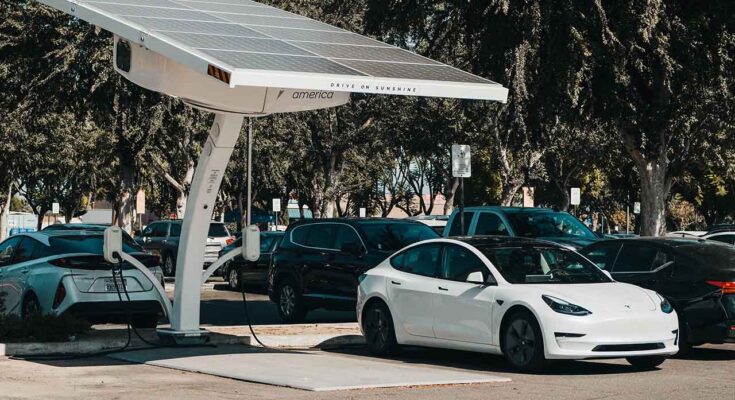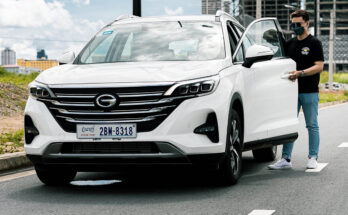Electric vehicles (EVs) have surged forward as a leading trend in the automotive industry, reflecting a profound shift towards sustainability and clean energy. In 2024, we are witnessing innovation at its peak, with electric vehicles becoming more than just an alternative to traditional combustion engines; they represent a revolution in transportation. This section delves into the latest EV trends and groundbreaking innovations that are reshaping our roads and our approach to mobility.
Current State of the EV Market
As of 2024, electric vehicle (EV) sales are breaking records, with a steep upward trend in consumer adoption. Global EV sales have seen a remarkable increase, accounting for around 10% of all new car sales, a significant jump from just a few years prior. This surge can be primarily attributed to a heightened public awareness of climate change and governmental policies incentivizing EV purchases.
Market analysts are keenly observing the rise of several major players in the EV industry. Tesla continues to lead with innovative technology and large-scale battery production, making their vehicles both high-performance and increasingly affordable. Meanwhile, traditional manufacturers like Volkswagen and General Motors are rapidly expanding their EV lineups, capitalizing on their manufacturing prowess and established customer base. New market entrants, such as Rivian and Lucid Motors, are also gaining traction through their focus on performance and luxury.
Overall, the commitment of these companies to invest billions in EV technology and infrastructure has not only diversified the options available to consumers but has also spurred further innovation in the sector. The increased competition is leading to advancements in battery technology, reductions in charging time, and an expansion of charging networks, all of which contribute to the ever-growing popularity of electric vehicles on a global scale.
Technology Advancements
In the realm of battery technology, cutting-edge advancements have spurred a significant leap forward in EV capabilities. Engineers have achieved breakthroughs that allow for extended range, with some vehicles now boasting the ability to travel over 400 miles on a single charge. Fast charging technology is also evolving at a breakneck pace, reducing wait times dramatically, so motorists can recharge their batteries in nearly the same time it takes to fill a gas tank.
Simultaneously, innovations in electric motors and drivetrains are propelling EV performance to new heights. New electric motor designs optimize energy efficiency, thereby enhancing the overall mileage possible from each kWh of battery charge. Furthermore, improvements in power electronics and integration have led to more compact, lightweight drivetrains that deliver torque more effectively and improve the vehicle’s acceleration, making electric vehicles not only cleaner but also more thrilling to drive.
Sustainable Materials and Manufacturing
The electric vehicle industry is not only revolutionizing transportation through electrification but is also pioneering the use of sustainable materials in vehicle production to lessen environmental impact. Major EV manufacturers are now integrating recycled and biobased materials into their cars’ interiors and structures. For example, the use of repurposed plastics for cabin components, and sustainably sourced woods and fibers are gaining prevalence as a means to reduce the carbon footprint associated with production. Recyclable materials are becoming a significant focus, leading to future vehicles that are not only zero-emission on the road but also more environmentally friendly to produce.
Furthermore, advancements in manufacturing processes are aiming to make EV production more sustainable. To reduce waste and energy consumption, automakers are leveraging renewable energy sources within their manufacturing plants, implementing closed-loop systems for water and materials, and utilizing 3D printing technologies to produce parts more efficiently. Innovations such as these are crucial for the full lifecycle impact of EVs to align with the sustainability goals that they aim to achieve in their operation.
Infrastructure Development
The expansion of the electric vehicle (EV) market is intrinsically linked to the development of charging infrastructure and its accessibility to consumers. As of 2024, governments and private companies have prioritized the establishment of expansive networks of charging stations, ensuring that EV owners can find convenient charging options, whether they are in urban centers or traveling longer distances across highways. This has significantly reduced range anxiety, once a major barrier to EV adoption.
Progress has also been made in integrating renewable energy sources into the EV charging infrastructure. Solar and wind power installations are becoming a common sight at charging stations, aligning with the green ethos of the EV movement. The push for renewable energy not only sustains the grid but also ensures that EVs are charged with the cleanest energy possible, minimizing their overall environmental impact from production to operation.
Investments and innovations in smart charging technologies are enabling better management of the demands on the electrical grid, especially during peak hours. Smart grids are facilitating the flow of renewable energy, optimizing charging times, and improving grid stability. This intelligent infrastructure is paramount in creating an ecosystem where electric vehicles can be charged efficiently and sustainably.




